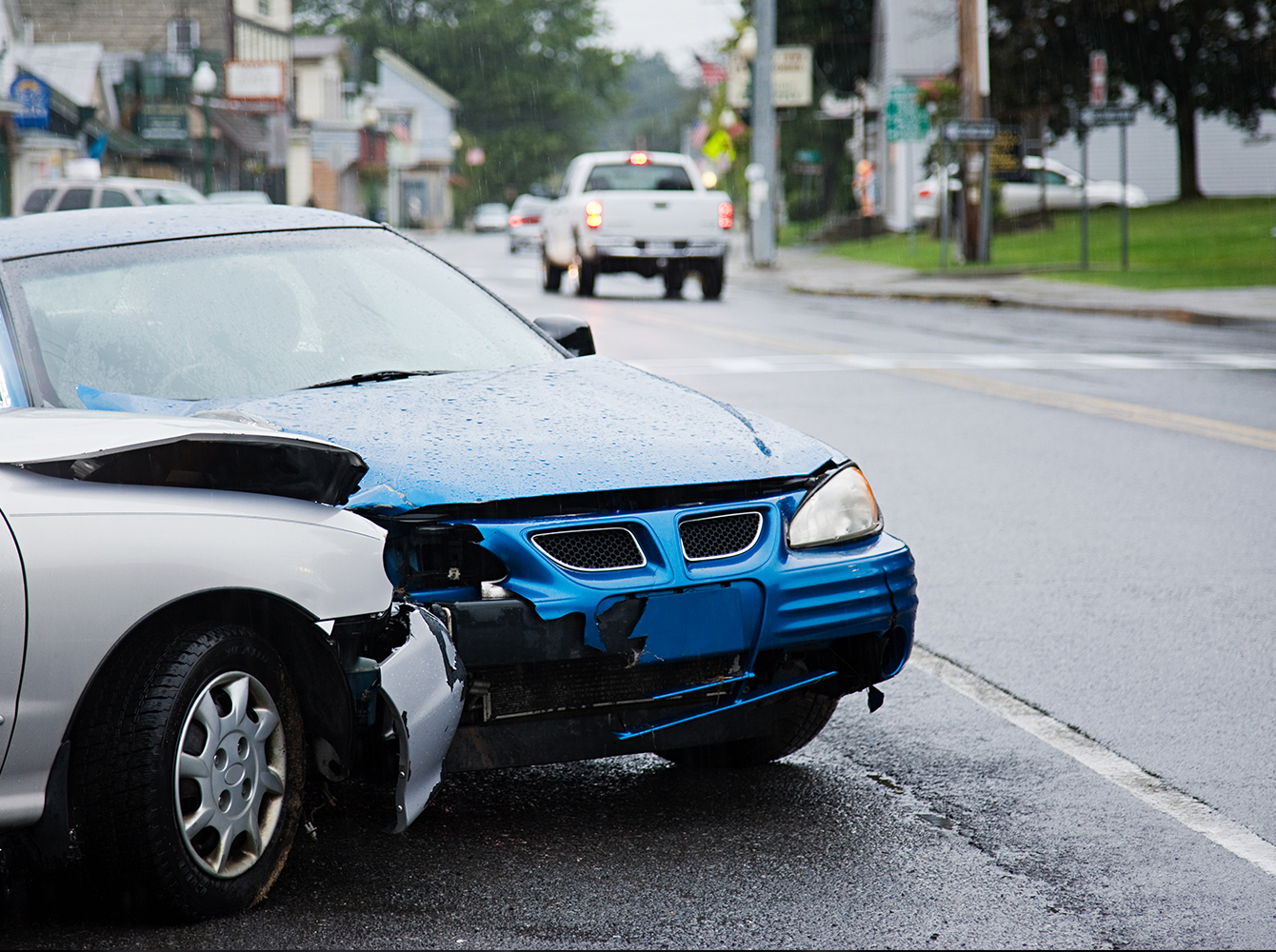What happens if your car insurance lapses?
- Coverage clarity
- Planning ahead
- Auto insurance

Life gets busy. Bills pile up. Renewal reminders get lost in the shuffle. It’s easy to overlook your car insurance policy until you realize it’s expired. A car insurance lapse might seem like a minor slip-up, but it can lead to serious consequences. From legal trouble to higher premiums down the road, a lapse can be costly in more ways than one.
A car insurance lapse is any period when your vehicle isn’t covered by an active auto insurance policy. This can happen if you miss a payment, forget to renew or your policy gets canceled by your insurer. No matter the reason, driving without insurance is a risk. Keeping continuous car insurance coverage isn’t just nice to have. It’s a legal requirement in nearly every state, and it protects your finances if something unexpected happens on the road. Even a lapse in car insurance policy as short as a few days can create problems that stick with you for years. Many states require insurance companies to notify the Department of Motor Vehicles when a driver's insurance lapses. This means that law enforcement will be aware of your lapse in the case of a ticket or accident opening you up to additional fines.
Why do car insurance lapses happen?
Between work, errands, family responsibilities and the constant ping of notifications, it’s easy to overlook a payment due date or miss a renewal reminder. And sometimes money is tight, and insurance premiums might not feel like the most urgent bill to pay.
But here’s the thing: Insurance companies, state agencies and even future insurers aren’t usually concerned with why your policy lapsed. They just see a gap, and that gap can come back to haunt you.Whether your auto insurance lapse happened by accident, out of necessity or because you thought you didn’t need coverage for a while, the results are the same: You’re left unprotected and labeled a higher-risk driver.
Understanding the most common reasons for lapsed car insurance can help you avoid the same pitfalls or at least be better prepared if life throws a curveball your way.
Here’s a closer look at why car insurance lapses happen (and how to stay ahead of them):
Non-payment of premiums
Sometimes it’s an oversight; other times, money’s just tight. Either way, if you miss a premium payment, your policy could be canceled.
Policy cancellation by the insurance company
Insurers can cancel your policy if you rack up too many claims, get serious traffic violations or misrepresent information on your application.
Failure to renew policy
If your policy ends and you forget to renew or decide to shop around but don’t lock in new coverage, that’s a lapse.
Vehicle sale or extended non-use
If you sell your car or park it long-term and don’t adjust your coverage, your policy could lapse.
Enjoy the ride with the right auto insurance
What happens if your car insurance policy lapses?
A short lapse might not feel like a big deal – especially if your car just sat in the driveway for a few days. But to insurance companies, law enforcement and even potential lenders, a car insurance lapse can signal a red flag. Whether your coverage lapsed for a week or a month, the consequences of car insurance lapse can follow you far longer. A lapse can result in higher rates when you seek new coverage, and drivers with a lapse may be quoted higher rates by insurance carriers due to the gap in coverage. Here’s the penalties for lapsed car insurance that you’re up against if your car insurance policy lapses.
Legal penalties
When it comes to driving without insurance, most states take it seriously – really seriously. In fact, depending on where you live, even a lapse in car insurance policy of just a few days could lead to fines, fees and even losing your ability to legally drive.
- Fines and license suspension – In many states, if your coverage lapses and you’re caught driving uninsured, you could face steep fines, points on your license or even a temporary suspension of your driver’s license and vehicle registration. Depending on the state, penalties for driving without insurance can vary widely, including fines of up to $5,000 or jail time.
- SR-22 requirement – If the lapse is serious enough, or if you’re caught driving uninsured more than once, you may be required to file an SR-22. This is essentially proof that you now have the required minimum insurance coverage, and it’s often mandatory before your license can be reinstated. Not every driver has to deal with an SR-22, but for those who do, it typically leads to higher premiums and limited choices for insurers.
Financial risks
It’s no secret that lapsed car insurance leaves you vulnerable financially. If you drive uninsured and get into an accident, even a minor one, you could end up paying for everything out of pocket. That means damage to your own vehicle, the other driver’s car and any medical bills for injuries. In a serious accident, those costs can easily climb into the tens (or hundreds!) of thousands of dollars.
Even if you never set foot behind the wheel during your lapse, you’ll still feel the financial pinch when it’s time to get covered again. Insurance companies view drivers with lapsed auto insurance as higher risk, which almost always means higher future premiums when you purchase a new policy or reinstate the old one.
Some insurers may even refuse to cover you at all, pushing you into the high-risk pool. In these cases, you might have to work with specialized insurers that focus on covering high-risk drivers – usually at high prices.
Impact on driving record
Even though a car insurance lapse isn’t a moving violation, it can still leave a mark on your driving history. Insurance companies track your coverage history when determining your rates. A clean, continuous record of insurance coverage can lead to lower premiums over time. On the flip side, a lapse in car insurance policy breaks that streak, and insurers don’t love seeing gaps.
A documented lapse can label you as a high-risk driver, even if you’ve never had an accident. The reasoning is simple: drivers who let their coverage lapse (even unintentionally) are statistically more likely to file claims in the future. This classification not only raises your rates but could also limit which insurance companies are willing to offer you a policy at all.
In short, a lapsed car insurance policy can turn into an expensive long-term headache. But the good news? The sooner you take action, the faster you can start repairing your insurance reputation.
What to do if your car insurance lapses
Don’t panic. But don’t drive, either. Here’s how to handle a lapse.
Step 1: Park the car
Driving without insurance is illegal in most places. And the penalties your insurance companies impose are worse if you’re caught behind the wheel uninsured. State laws require insurance companies to notify policyholders before cancelling their policy after a missed payment, however this does protect you from a claim that happens after the payment due date.
Step 2: Call your insurance company
Depending on how long it’s been, you might be able to reinstate lapsed car insurance. Some insurers offer a car insurance lapse grace period, usually 10 to 20 days after a missed payment. If you’re still within that window, you may avoid major penalties. Even if your grace period has passed, you can often still reinstate, though you might have to pay fees or higher premiums. Be upfront about why the lapse happened; insurers appreciate honesty.
Step 3: Shop around if needed
If reinstatement isn’t on the table, start comparing quotes for a new policy. Drivers with lapsed auto insurance may need to look at high-risk insurers, but that doesn’t mean you can’t find good coverage at a decent rate.
Step 4: Get legal again
If your state requires an SR-22 after a lapse, file it ASAP. And if you received fines or penalties, pay them quickly to keep things from snowballing further.
How to avoid a car insurance lapse
When it comes to car insurance, prevention is always cheaper. A car insurance lapse doesn’t just put you at risk for fines and higher premiums, it can also make it harder to find affordable coverage in the future.
The good news? Avoiding a lapse isn’t complicated. A few smart habits and a little bit of planning can go a long way in keeping your coverage intact. Whether you’re juggling a busy schedule, switching vehicles or simply trying to stay on top of your budget, these tips can help you keep your car insurance policy active.
- Set up automatic payments – Automate your payments so you never forget. Most insurers offer discounts for enrolling.
- Regularly review policy details – Mark your calendar or set a reminder a few weeks before your policy expires. That way, you have time to renew or switch if you find a better deal. Renewing your policy on time helps you avoid a lapse in coverage.
- Maintain open communication with your insurance company – Moving? Buying a new car? Going on an extended trip? Let your insurance company know so they can update your policy and keep you covered.
- Consider policy bundling – If you have homeowners insurance, renters insurance or any other type of insurance, bundling them with your auto policy can save money and make managing your coverage easier.
- Monitor driving record – The fewer violations and claims you have, the less likely your insurer is to cancel your policy. Plus, you’ll qualify for better rates.
A car insurance lapse can be a hassle, but it doesn’t have to derail your finances or your ability to drive legally. By understanding the risks, acting quickly after a lapse and putting a few safeguards in place, you can keep your coverage intact and your premiums as low as possible. If you need help finding the right coverage – after a lapse or not – contact the VIU by HUB Advisory Team for a personalized quote and stay protected wherever the road takes you.
A panoramic outlook on
all things insurance
The VIU Point is here to help you make sense of it all, so you can confidently compare auto insurance quotes and make the best policy decisions.


